When floods came, students rose to challenge
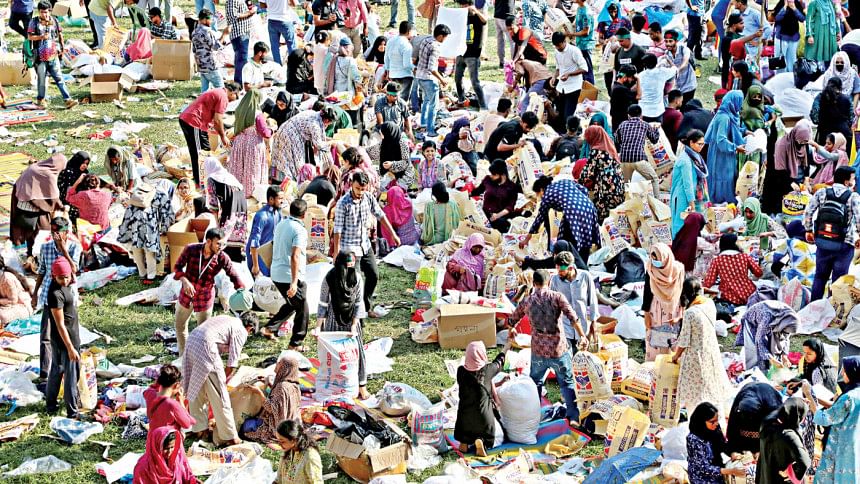
Hundreds of students from Dhaka, Chattogram and districts in between were seen marching towards Feni on August 22. They travelled in trucks, with speedboats and life jackets, on a mission to rescue those stranded by the unprecedented floods that swept through the region.
This was no organised operation -- this was a spontaneous, student-led mobilisation, born from the heart of a country still vibrating with the energy of a historic uprising.
Only weeks earlier, on August 5, these same students had toppled a government they believed had failed them.
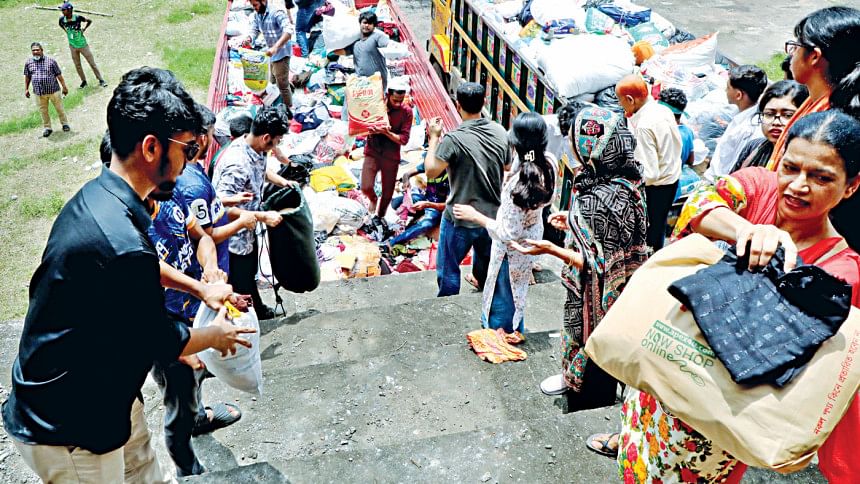
In the streets, the slogan "Desh ta karo baaper naa" (The country does not belong to anyone's father) echoed.
Another slogan, "Tumi ke? Ami ke? Bikolpo, Bikolpo, Bikolpo!" (Who are you? Who am I? We are the alternatives!) served as a rebuttal to the narrative that there was no alternative to the old regime.
So, the floodwaters came like a test, and the youth of Bangladesh rose to meet it.
Within hours of the disaster, these students had arranged trucks and speedboats and set off to help the flood-hit people.
They didn't wait for orders, didn't pause for bureaucracy; they simply acted. In their hands, the nation found its first responders.
People from all walks of life chipped in. Some joined the rescue operations, while others collected and sent relief materials to those in need.
It was not driven by any political agenda but by the simple desire to save lives.
The risks were enormous. These were students, many of whom had never seen a flood like this, and never handled a rescue operation.
At least one student lost his life when a speedboat overturned during a rescue mission.
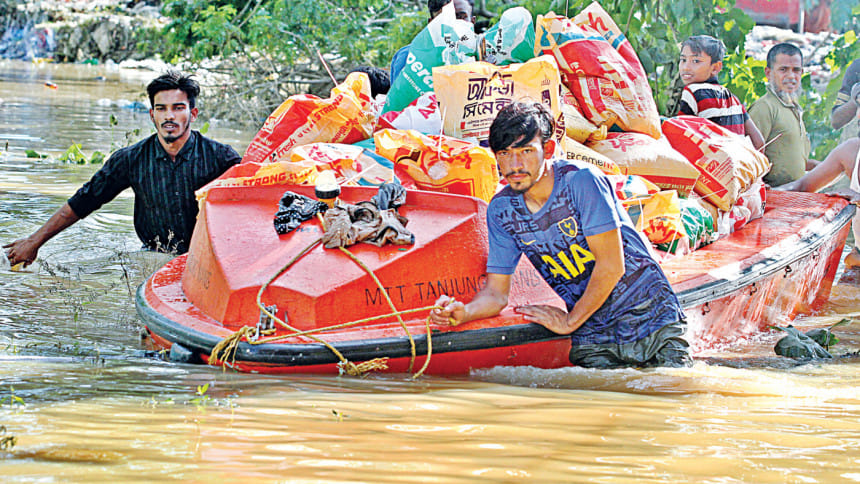
The students knew the risks, but they also knew the stakes -- they were saving lives, taking responsibility for their country in a way that no one had asked them to, but that everyone needed them to.
This was patriotism in action, a continuation of the uprising that had shaken the country just weeks before. The floods revealed the true character of a generation that had already proved its mettle in the streets. They showed that the slogans were not just words, but a promise they were determined to keep.
THE RESCUE EFFORTS
"Is there anyone who needs help?" The students' voices pierced the darkness as their speedboats cut through the floodwaters. Lights from their torches scanned for any sign of life. The current was strong, but they pressed on.
In Silonia, one of the worst-hit areas alongside Poshugram and Fulgazi, they saw tin-shed houses submerged, with only rooftops occasionally visible through the water.
Despite the danger, a rescue team led by Faysal Showdagar, a student from the University of Asia Pacific, braved these waters.
The water had already reached the second floor of buildings, forcing many to seek refuge on rooftops.
Two journalists from this newspaper were with them as they rescued around 100 people in batches, prioritising women, children, and the elderly.
The rescued were taken to areas where the water was lower and then transferred to tractors, which brought them to shelter centres near Feni town.
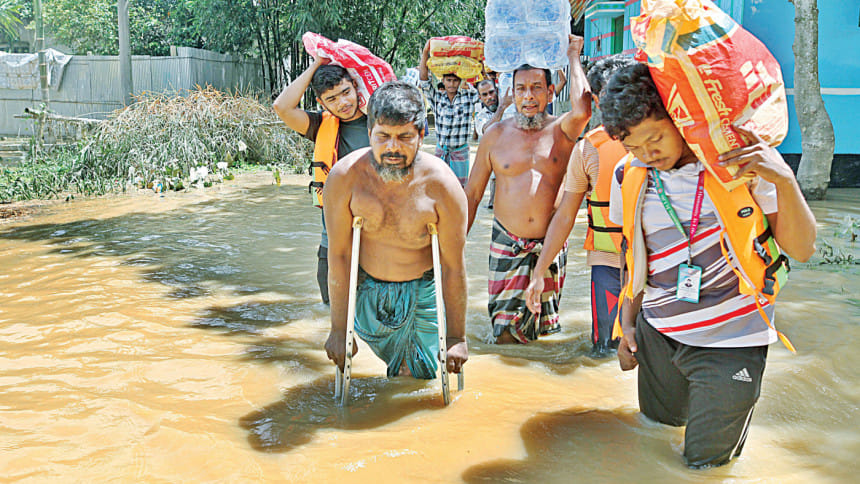
In Silonia, the correspondents saw a two-storied school building, intended as a flood shelter, completely submerged. The water had risen to the stairs and even reached the second floor, forcing everyone to seek refuge on the roof.
Faysal's teams had to conduct rescues from these very shelter centres, as even designated safe havens went under water.
Earlier, Mashrafee, a student from Ahsanullah University and a member of Faysal's team, heard the cries of a family trapped in a partially submerged tin house.
With water up to their chests, the 10 family members were desperate.
"I managed to cut through the tin roof, pulling each one to safety," Mashrafee recounted.
Among those saved by students in Siilonia was Shahinur Akhter, a 24-year-old pregnant woman, who had been stranded on a roof without food for nearly two days.
Her labour pains had already begun, and she had nearly lost hope when Faysal's team arrived.
They quickly evacuated her and brought her to a local clinic, where she gave birth a few hours later. Both mother and child are safe now.
"The students saved me and my baby. I have no words to express my gratitude. I want them to name my newborn," Shahinur said.
The rescue efforts were fraught with challenges -- communication blackouts, no electricity, and the constant fear of losing team members in the chaos.
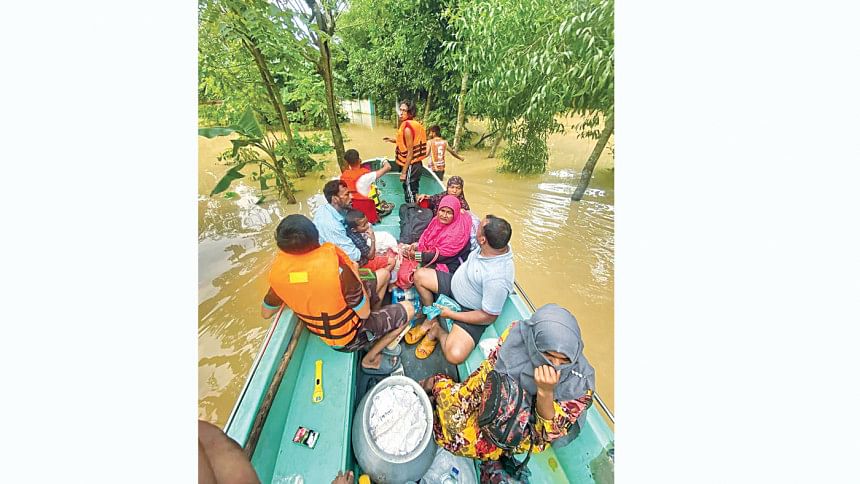
Yet, the students, different groups of volunteers -- like Nasimul Alam from Tongi, Md Rafat Hossen from Dhaka, Md Rakbul Islam from Dhaka University, and Md Rezaul Islam, a madrasa student, continued their mission.
In areas where even trained forces hesitated to enter due to the risks, these young heroes pressed on, saving lives against all odds.
Hundreds, seeing the rescue boats, scrambled to board, but with limited space, not everyone could be saved. The decision to take some aboard while leaving others behind was a difficult one to make, they said.
STUDENT-LED RELIEF ENDEAVOUR
An elderly disabled beggar was seen contributing a portion of his meagre earnings to the students collecting funds and relief for flood victims.
Children as young as five brought their piggy banks to university students, eager to help those affected by the floods. Rickshaw pullers, too, donated a part of their income.
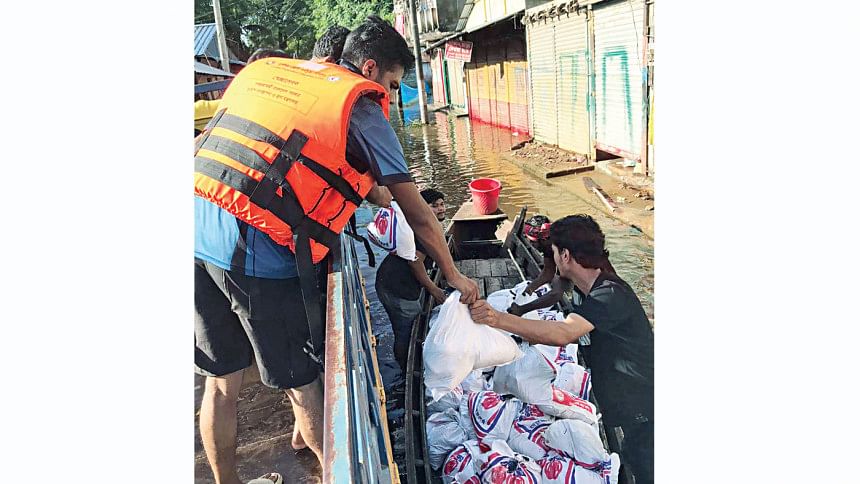
People from all walks of life responded to the students' call.
Universities like Dhaka, Jagannath, and Jahangirnagar became hubs for these student-led relief efforts, uniting the nation in a powerful display of solidarity and compassion.
"I wanted to help the flood-affected people. I wish everyone would come forward to help," said 12-year-old Raisa Mehjabin, a sixth grader.
Marina Akhter, a homemaker who came from Mirpur to Dhaka University, said, "Since students of the anti-discrimination movement are collecting funds, I have decided to donate from a place of trust."
At DU, the ground floor of the TSC building overflowed with relief materials, so much so that supplies were also stored at the DU Central Field, Ducsu Bhaban, and the Social Science Building. Hundreds of volunteers tirelessly collected, sorted, and packaged these goods, which were then loaded onto trucks and dispatched to the flood-affected areas.
"For the past 16 years, we have seen these kinds of initiatives be limited to the government's student organisations. But before that, during any crisis, we used to see collective participation from everyone. It seems that we have returned to that place," said Prof Tanzim Uddin Khan of the Department of International Relations at DU.
The Daily Star and other media outlets have published multiple reports based on the relief efforts in DU.
However, there were concerns about a lack of coordination and delays in relief distribution. Some relief materials did not reach the most affected victims due to inaccessible conditions.
But the students against discrimination platform, who were in charge of the relief operation at DU, was transparent by announcing how much money they collected every day.
On Wednesday, they gave a detailed account on how much money was spent on which sectors and how many relief materials were distributed.
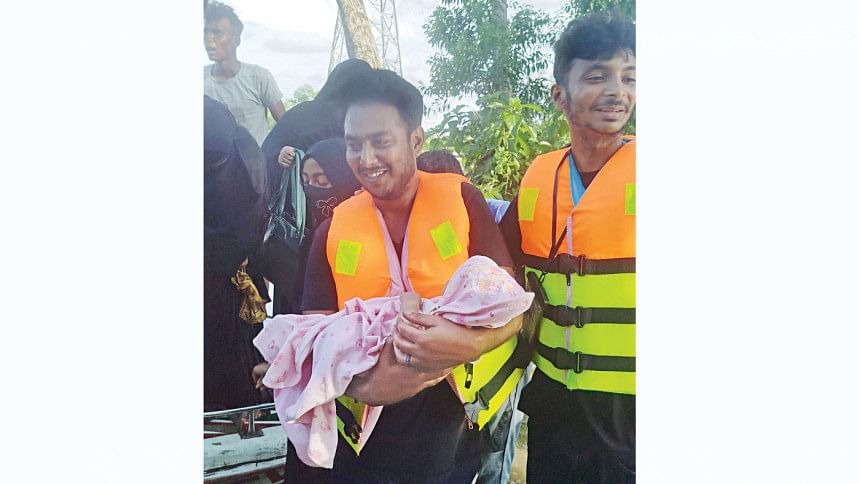
The platform's leaders claimed they have addressed the allegations and ensured that relief efforts are being coordinated effectively.
Meanwhile, left-leaning student bodies organised a concert to collect relief in DU, from where they collected cash worth Tk 21,78,757.
They also received a large amount of dry food, salines, clothes, and water from the concert. The organisers also provided a detailed account of their expenditures and the current status of the relief distribution.
Meanwhile in Feni, this newspaper spoke with the student volunteers who are still working to send relief materials to remote areas. They shared how they encountered people who had been without food for days.
"Relief materials barely entered the remote areas of Silonia, Poshugram and Fulgazi. Those who stayed behind and somehow escaped death, were without food and pure water for days. When we first entered these areas, people broke down in tears seeing us. They were desperate for just a sip of pure water, some wanted medicine. People were crying for just a handful of puffed rice," said Faysal.
Others shared similar accounts.
As the trucks and boats moved through the floodwaters, as students worked through sleepless nights, a new Bangladesh was being born -- a nation where the people, not the politicians, were in charge.
Sure, there were some lack of coordination, instances of infighting and isolated occurrences of mismanagement, but the younger generation stepped up in a time of crisis, and in doing so, they have saved countless lives.


 For all latest news, follow The Daily Star's Google News channel.
For all latest news, follow The Daily Star's Google News channel. 


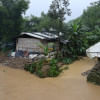
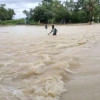
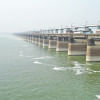
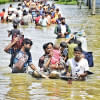


Comments